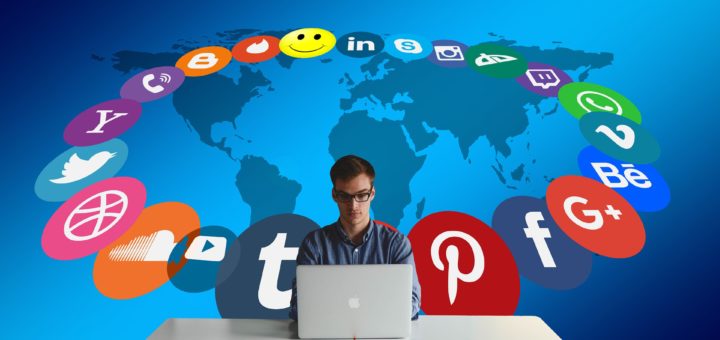The Social Media Panopticon

In the late 18th century, one of the great English eccentrics, philosophers, and social theorists Jeremy Bentham described his concept for a prison, which he called the Panopticon. The design of the prison consisted of a circular structure with an inner circular hub in which the prison wardens could always keep an eye on the prisoners. The main thrust of the idea was that fewer guards would be required as prisoners could never escape the watchful eyes of their jailers. The same can be said of interacting through social media.
I was reminded of Bentham’s concept when I received an email from LinkedIn telling me of all the goings and comings of my various contacts. (And I’d assume that my comings and goings would be in their updates). I learned of a person reading a particular book, another changing jobs, and yet another person having participated in a conference.
Facebook has also added some technology to the Panopticon of social media with its Open Graph API. With Facebook’s offering, other programs integrate with Facebook, adding such tidbits as the very music being piped into your earbuds. Other examples of programs or websites integrating with Facebook include Netflix and Ticketmaster.
When like, plus, tweet, and pin functionality is added to just about every bit of content on the web, we’re able to construct an insight into our fellow socialnauts that is 360 degrees.
At the same time that we are getting this complete view of each other, the very social platforms delivering this information are becoming more and more invisible. Ultimately, you won’t need to know that you’re on Facebook or GooglePlus – as the rest of the Internet will have integrated with those platforms. Our entire world will become an extension of social media.
Conclusion
After spending a whole day on my computer or smart phone, I sometimes catch myself wanting to click something to see more information. Technology has made it so easy to grab any information that we want or need. At the push of a button, I can find whatever I am searching for and become more knowledgeable for it. It would be wonderful if the same concept could be applied to the other aspects of life. It would be amazing if anything could be obtained at the mere push of a button. Shouldn’t products at the grocery store and book store have that functionality? If others are having these same thoughts, certainly the reality isn’t far behind. In which case, there really won’t be any escaping our jailers’ eyes.
[signoff][/signoff]



Interesting Ric. I always like to learn what my connections are doing and find it fun to know they got promoted, or that you listened to a jazz artist I’ve never heard of (you listen to some great stuff on Spotify!). But I hardly stop to think that others are learning about me too. Well, there was that one time that I was at the gym listening to the “Hard Bodies, Hard Rock” workout channel. The influx of comments from my Facebook friends reminded me…oh yeah…they’re watching!
Indeed, Paul – we’re *watching* you 🙂
+Bonnie Cehovet via Google+
Loved the intro to this article! One thing that having all of this info out there does for us is (if we do it right) bring attention to our sites, and what we have to offer.
It does – or can – and added up, our personal brands and our business brands inform one another. Then, when we author content, it can also inform the relevance of that. It becomes one big cloud of information.
+Jane Gassner via Google+
The Panoptican was the model for the prison system that we have today, but it doesn’t extend very well to social media and the internet. There is no central They watching us, and we are always able to leave at will. The idea that social media ends up imprisoning us doesn’t really follow.
Hi Jane, thanks for the comment. You have a point – although I feel in a sense that while we may or may not be able to opt out – “BIG DATA” is the “watcher.” I never meant that social media imprisons us – but it does make us seen. But I see your point.
+Georgia Brooke North via Google+
It is no ones Right to Put anyone in Prison no matter what Philophy is written its words not Truth. No one has the Right to anyone’s or things life. They only thing anyone here actualy Owns is their own Body.
Good point, Georgia!
+Ubiqus Reporting via Google+
Very insightful! It’s starting to seem that while social media gives people a voice, it’s hard to stand out the chorus of them. Definitely something to remember when using social media for branding.
Via LinkedIn Groups
Group: NJ MarCom
Discussion: The Social Media Panopticon
While it may be wonderful to ‘grab any information that we want or need’ at out fingertips, the following words played in my mind while I read this interesting piece: Big Brother…
By Julie P. Lauton